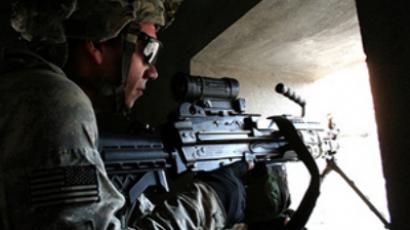“American approach to national security is fundamentally defective”
The US has stuck for years to using military power in foreign policy, despite the fact that there is but a handful of problems that can be solved by brute force, says Andrew Bacevich professor at Boston University.
“The American people have to come to the recognition that our approach to national security is fundamentally defective,” he told RT.
“There are very important continuities between Bush and Obama, and I think one of the most important ones of these continuities has to do with the emphasis placed on the role of military power as the primary instrument of the US foreign policy. We spend lavishly on the Department of Defense, we don’t spend anything approximating lavishly on our State Department.”
Meanwhile the way in which Washington tried to fix problems like Iraq and Afghanistan by military force does little to help America’s national interests in those regions.
For instance, in Afghanistan the only interest the US has from the national security standpoint is not to let Al-Qaeda-like elements use it as a base. Surveillance of Afghani territory and destruction of Al-Qaeda bases does not require keeping an occupational force and maintaining costly counter-insurgency and nation-building campaigns, Bacevich says.













